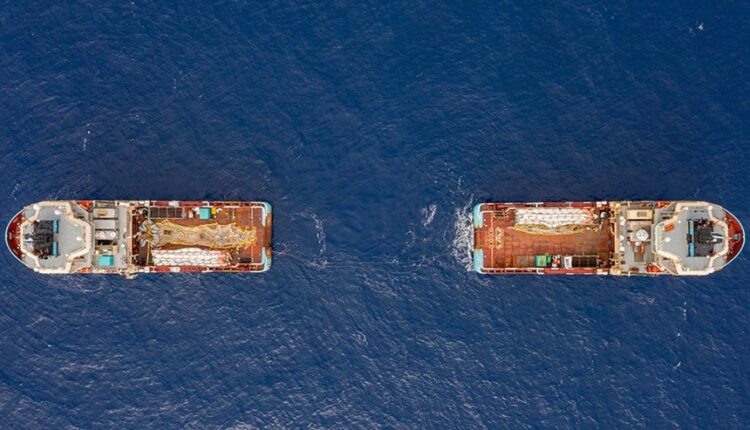Sea News – International ServiceThe ocean economy, one of the fastest-growing pillars of global trade, has played an unprecedented role in employment, food security, and economic diversification of countries in recent years. A new UNCTAD report reveals that the value of global ocean trade reached $2.2 trillion in 2023, accounting for 7% of total global trade. This figure includes $1.3 trillion in services and $900 billion in goods. The rapid growth of this sector, especially since 1995, has made it one of the main drivers of the global economy. Between 1995 and 2020, the ocean economy experienced a 2.5-fold growth, whereas the global economy grew only 1.9 times.
This report is based on data and analyses presented in the “Global Trade Update – Policy Insights” report published by the United Nations Conference on Trade and Development (UNCTAD) in June 2025. UNCTAD, as a specialized UN agency, focuses on countries’ trade, economic, and developmental issues.
Asia and Europe are the main leaders in ocean-based trade, accounting for over 80% of global exports of ocean goods and services. Developing countries have also played a significant role in the growth of this sector; however, least developed countries continue to face chronic deficits in their trade balance, both in goods and services. The composition of ocean trade also highlights a strong focus on services, with 60% of the total trade dedicated to services. Coastal and marine tourism, valued at $725 billion, and maritime transport, at $386 billion, top the list of ocean-based services. In the goods sector, shipbuilding and port equipment hold the largest share with $348 billion, followed by processed seafood products at $89 billion.
Despite its rapid growth, the ocean economy faces increasing threats that cast uncertainty over its future. Climate change, rising sea levels, severe storms, overfishing, and widespread plastic pollution are critical challenges. Worrying statistics such as 38% of marine fish stocks being overfished and 8 to 10 million tons of plastic waste entering the oceans annually have raised alarm bells for the sustainability of this sector. Additionally, new activities in deep-sea mining have also brought serious environmental concerns.
In this context, UNCTAD stresses the need to strengthen global governance in this sector and accelerate the adoption of international agreements, such as the World Trade Organization treaty to eliminate harmful fishing subsidies. Investment in green technologies, the development of Blue Finance, and support for non-plastic alternatives such as seaweed use are proposed as solutions for the sustainable development of the ocean economy. Moreover, reducing greenhouse gas emissions in maritime transport and coastal tourism are prioritized climate actions recommended.
The future outlook for the ocean economy in 2025 remains positive, but its sustainability depends on reducing trade tensions, addressing disruptions in maritime supply chains, and coordinated efforts by countries to achieve the Sustainable Development Goals. Undoubtedly, achieving the United Nations’ Sustainable Development Goal 14 (SDG 14), which is dedicated to the conservation and sustainable use of oceans, can only be realized through broad global participation, improved data, and strengthened policy infrastructure.
Source:
“Global Trade Update – Policy Insights,” United Nations Conference on Trade and Development (UNCTAD), June 2025

